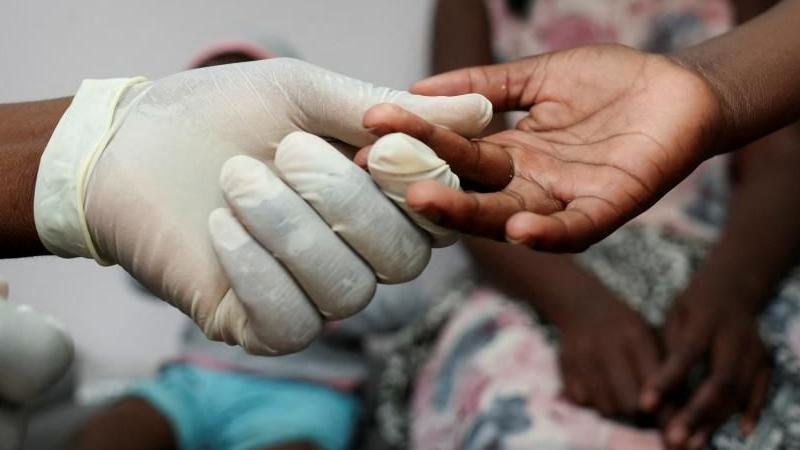A report made public by the BBC on July 10, 2025, reveals the tensions among South Africans over the spike in HIV case, following US aid cuts.
Gugu, a 54-year-old former sex worker living in Johannesburg, used to collect her antiretroviral (ARV) medication from a USAID-funded clinic in the city.
That clinic, like many others across South Africa, closed earlier this year after U.S. President Donald Trump implemented sweeping cuts to foreign aid, including critical funding for HIV programs.
Fortunately for Gugu, the clinic notified her before shutting its doors.
“They gave me a nine-month supply instead of the usual three,” she said.
That medication will last her until September, after which she plans to seek treatment at a local public hospital.
Diagnosed with HIV a decade ago, Gugu initially thought she had tuberculosis after developing a persistent cough.
When treatment failed, she opted for an HIV test at a nearby clinic and was not surprised when the result came back positive.
Since then, she has remained on ARVs, which help suppress the virus and prevent AIDS-related complications.
Today, Gugu works with an NGO that supports pregnant sex workers, helping them access medication to ensure their babies are born HIV-negative.
The organization also conducts home visits to encourage adherence to treatment and assist with routine checkups for the mothers and their children.
But for many sex workers like Gugu, the closure of specialized, donor-funded clinics has created enormous uncertainty.
These clinics were a lifeline, staffed by trained professionals, free of judgment, and accessible.
Now, thousands are being pushed toward overburdened public hospitals.
“There’s a huge time cost,” Gugu said.
“At government hospitals, you have to queue from 4 or 5 a.m., sometimes waiting the entire day.
“For sex workers, that’s time lost and income lost.”
Worse, stigma at public health facilities remains pervasive. Gugu recalled visiting a hospital with friends to register, only to be met with hostility.
“The nurse told us there was nothing special about sex workers,” she said.
Gugu fears that such experiences will drive many away from treatment altogether, especially those concerned about privacy.
“Our files have personal information.
“And unfortunately, some nurses are not discreet,” she added.
A recent UNAIDS report highlights the global implications of donor funding cuts.
Although it did not single out the U.S., it warned that declining support from international backers has put recent progress at risk.
Since 2010, new HIV infections have fallen 40%, and 26 million lives have been saved through treatment and prevention.
But without urgent intervention, the report warns, the world could face 6 million new HIV cases and 4 million AIDS-related deaths by 2029.
Sub-Saharan Africa, where South Africa has the highest number of people living with HIV, 7.7 million, has seen new infections fall 56% since 2010.
Four African nations, Lesotho, Malawi, Rwanda, and Zimbabwe—were on track to cut new infections by 90% by 2030.
South Africa’s success in expanding access to ARVs helped boost life expectancy from 56 years in 2010 to 62 in 2024.
This progress owes much to the President’s Emergency Plan for AIDS Relief (PEPFAR), launched by U.S. President George W. Bush in 2003.
With over $100 billion invested globally, it remains the largest health initiative by any single country targeting one disease.
In South Africa, PEPFAR once contributed around 17% of the national HIV/AIDS program budget, funding mobile clinics, medications, and community outreach.
The abrupt withdrawal of U.S. support threatens not only treatment access, but also research. South Africa has long been a leader in HIV science.
Medications like PrEP (pre-exposure prophylaxis) and Lenacapavir, a twice-yearly injectable ARV offering complete HIV protection, were trialed in the country.
At Wits University’s Health Sciences campus in Johannesburg, researchers with the Brilliant Consortium had been working on a potential HIV vaccine.
But after Trump’s funding freeze, operations stalled.
“When the stop order came, we had to halt everything,” said Associate Professor Abdullah Ely.
“It’s set us back months, maybe even a year.”
Now, there’s not enough funding to conduct scheduled clinical trials.
“Any breakthrough research might now be tested abroad, in the U.S. or Europe,” Ely warned.
South Africa’s universities recently requested a bailout of 4.6 billion rand (around $260 million) to cover the shortfall.
So far, only 600 million rand has been pledged, by the South African government, the Bill and Melinda Gates Foundation, and the Wellcome Trust.
For Gugu, this is personal.
“I had hoped for a cure in my lifetime,” she said.
“I care for a nine-year-old and want to stay healthy for him.
“But these cuts don’t just affect me—they endanger the next generation.”







